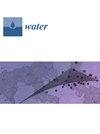Green Roof Systems for Rainwater and Sewage Treatment
IF 3
3区 环境科学与生态学
Q2 ENVIRONMENTAL SCIENCES
引用次数: 0
Abstract
Green roof systems are regarded as a viable solution for mitigating urban environmental challenges and offering a multitude of environmental benefits. Currently, green roofs are increasingly being utilized for the management of rainwater runoff and wastewater. The integration of decentralized rainwater and sewage on-site treatment technology with urban green buildings is being gradually promoted. Green roofs can also be considered as a form of decentralized rainwater and sewage on-site technology, which holds great potential for widespread adoption in the future. Several studies have suggested that green roofs may serve as a potential source of pollutants; however, there are also studies that clearly demonstrate the efficient removal of nutrients and organic pollutants by green roofs. This article critically examines the existing literature on water treatment aspects associated with green roofs and elucidates their classification and operational mechanisms. Through an analysis of previous research cases, it becomes evident that both substrate and vegetation play a significant role in influencing the treatment performance of green roofs. By designing and configuring appropriate substrate and vegetation, green roofs can play a pivotal role in the purification of water quality. Finally, a brief outlook is presented for the future research directions of green roofs, with the anticipation that green roofs will feature more innovative and environmentally friendly designs, as well as expanded prospects for application.用于雨水和污水处理的绿色屋顶系统
绿色屋顶系统被认为是缓解城市环境挑战的可行解决方案,并能带来多种环境效益。目前,屋顶绿化正越来越多地被用于雨水径流和废水的管理。分散式雨水和污水现场处理技术与城市绿色建筑的结合正在逐步推广。屋顶绿化也可被视为一种分散式雨水和污水就地处理技术,具有在未来广泛采用的巨大潜力。一些研究表明,屋顶绿化可能会成为潜在的污染物来源;但也有一些研究清楚地表明,屋顶绿化可以有效地去除养分和有机污染物。本文对与屋顶绿化相关的水处理方面的现有文献进行了批判性研究,并阐明了其分类和运行机制。通过对以往研究案例的分析,可以看出基质和植被在影响屋顶绿化的水处理性能方面发挥着重要作用。通过设计和配置适当的基质和植被,屋顶绿化可以在净化水质方面发挥关键作用。最后,对屋顶绿化的未来研究方向进行了简要展望,预计屋顶绿化将采用更创新、更环保的设计,应用前景也将更加广阔。
本文章由计算机程序翻译,如有差异,请以英文原文为准。
求助全文
约1分钟内获得全文
求助全文
来源期刊

Water
WATER RESOURCES-
CiteScore
5.80
自引率
14.70%
发文量
3491
审稿时长
19.85 days
期刊介绍:
Water (ISSN 2073-4441) is an international and cross-disciplinary scholarly journal covering all aspects of water including water science and technology, and the hydrology, ecology and management of water resources. It publishes regular research papers, critical reviews and short communications, and there is no restriction on the length of the papers. Our aim is to encourage scientists to publish their experimental and theoretical research in as much detail as possible. Full experimental and/or methodical details must be provided for research articles. Computed data or files regarding the full details of the experimental procedure, if unable to be published in a normal way, can be deposited as supplementary material.
 求助内容:
求助内容: 应助结果提醒方式:
应助结果提醒方式:


